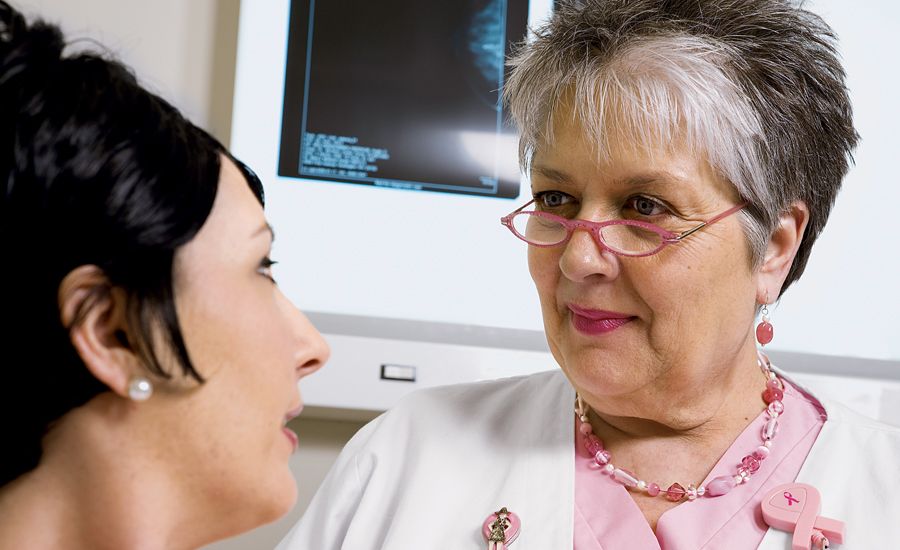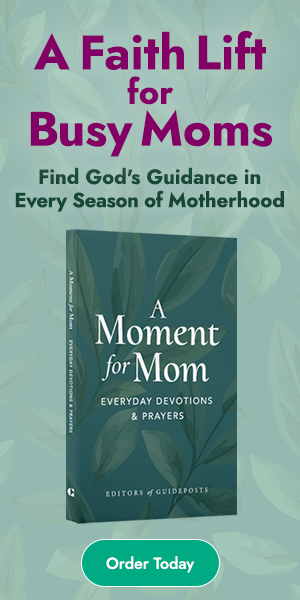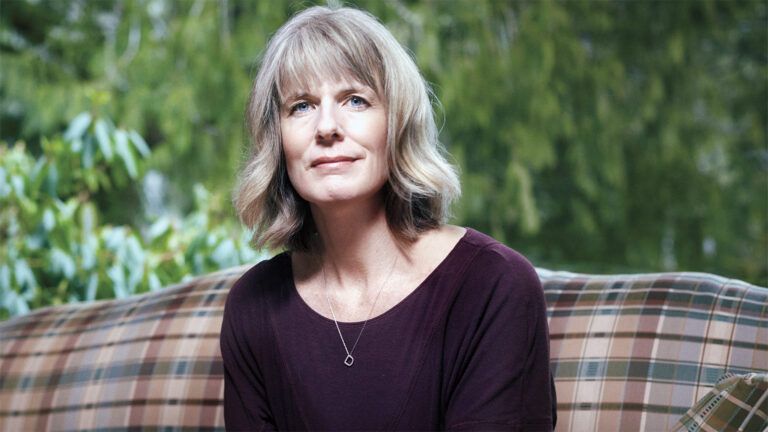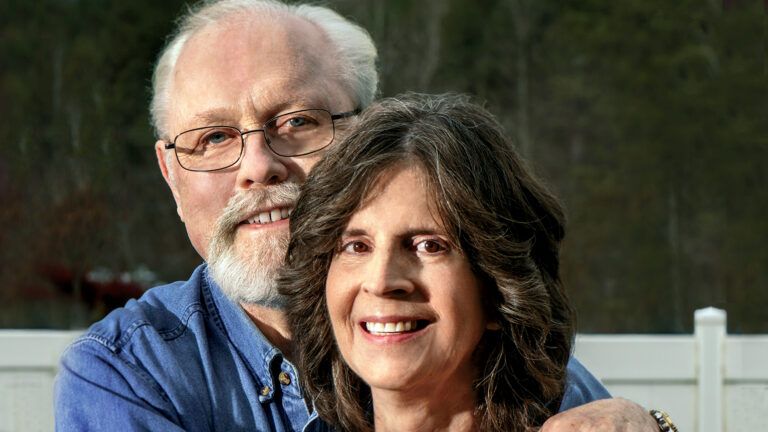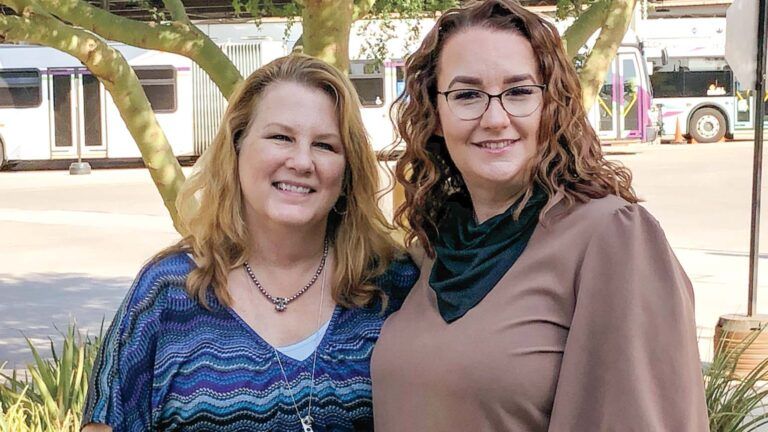Early morning and I’m in my car, rushing along the interstate, with the sun just rising over the Ohio River. I approach a beautiful, almost futuristic looking building with gleaming white walls and green-tinted glass. This is where I work, one of the most uplifting places I know—the Edwards Comprehensive Cancer Center in Huntington, West Virginia, where I’m a cancer nurse.
Yes, that’s right, a cancer center, where people are diagnosed and treated for all kinds of cancer by 12 specialized physicians and a team of nurses and support staff.
I work in the Diagnostic Breast Center, helping women through mammograms, biopsies and the inevitable challenges they face when they hear those dreaded words, “I’m sorry. It’s cancer.”
READ MORE: NURSE’S NIGHTMARE SAVES A LIFE
The cancer center is a two-and-a-half-year-old wing of Cabell Huntington Hospital, where I’ve been an oncology nurse for 13 years. I love the way the sun hits the center in the mornings when I arrive at eight. The offices and exam rooms are already filling with patients getting tests, radiation treatments and other outpatient procedures—anything serious requiring an overnight stay happens in the main hospital.
The Diagnostic Breast Center has celery-colored walls and artwork in the exam rooms, including a cross-stitch done by one of our patients, depicting a sailboat on the sea, a tiny pink ribbon fluttering from its full sails.
I go to my cubicle, where I keep pictures of my four grandchildren, and answer phone messages, many from patients needing something you might not associate with a hospital—a loving, supportive voice.
I became a nurse late in life after raising four kids as a stay-at-home mom, and I think that experience, as much as my nursing education, helped prepare me for what I encounter every day in a cancer center.
Patients diagnosed with cancer are often, at least initially, shattered. Their first need, beyond the practicalities of treatment, is an anchor, someone to remind them that all is not lost, that there is hope. I’m that person.
I’m usually with them in the exam room when the doctor delivers the diagnosis, and I’m there for them as long as they’re getting treatment or involved with the hospital in any way. It’s an emotionally demanding role.
Not long ago a couple came in to hear results of the wife’s breast-cancer biopsy. “I’m sorry,” said the doctor, delivering bad news. The doctor left and I stayed in the room, going over treatment options and reassuring the wife that she’d not be alone, that her prognosis was better than she probably felt right then.
FOR MORE INSPIRING STORIES, SUBSCRIBE TO GUIDEPOSTS!
Suddenly her husband broke down in tears. “Sir, it’s okay,” I said, putting a hand on his shoulder.
He looked up. “It’s not. I lost my first wife to cancer fifteen years ago. I can’t do it again.”
I waited a moment, letting him cry. Then I said, “That’s terrible to hear, sir. But that grief doesn’t have to rule you now. Your wife needs your support, and so do I. Let’s focus on where we go from here.”
He gathered himself and, as he and his wife became regulars at the center, I watched his strength and support for her grow enormously.
I see transformation like that every day, especially during the monthly support-group meetings I convene in a conference room on our floor. One of my patients, a tiny Appalachian woman named Olive, in her sixties with ovarian cancer, was an avid participant in those meetings.
She lived with her disease for 11 years, enduring rounds of chemotherapy, losing her hair, weakening, all the while working as a public-school cafeteria cook.
And yet she made that monthly hour-and-a-half drive from her rural home without fail, often calling other patients to encourage them to come too, or just to talk and pray with them. She grew during her illness, becoming a person of unfailing faith and charity.
As soon as I can, I begin seeing patients, either accompanying them during tests or consultations or working with them on some aspect of treatment. Often I pray for strength, specifically for the strength to be a source of hope. It’s what patients need most and, contrary to what you might think, it’s what they find here. Cancer teaches everyone, doctors as well as patients, that hope is a discipline, not an emotion.
Once, I was with an older woman just diagnosed with breast cancer. Her daughter had had a lumpectomy two years before. Like any mother, she was grieved that her daughter had gotten sick first—somehow she felt that she had let her down.
“Don’t look at it that way,” I said. “Of course you wish your daughter had never gotten sick. But now the two of you can support each other. Your relationship will go even deeper.” She looked at me gratefully, as if a new future had suddenly opened before her.
READ MORE: A NURSE’S FAITH FOLLOWING KATRINA
That new future can be long or short, depending on the patient. But it is always rich with new wisdom and, sometimes, even redemption.
Once, I cared for an older man diagnosed with terminal lung cancer. He began his hospital stay taciturn and embittered. But one day, as his time came near, his two grown sons, aged 18 and 20, appeared at his bedside—a miracle, since, after he had left their mother and dragged the family through a bitter divorce, he had been estranged from them.
They had come to tell him in his last moments that they loved him, maybe even that they forgave him—I didn’t hear the whole conversation. His body wanted to sleep, but he was fighting it. “If I go to sleep, I may not wake up,” he said with difficulty. “I want to hold on to this family.”
“Don’t worry, Daddy,” the boys said. “We’ll be here.” The man went to sleep and died peacefully—not just free of pain, but free of remorse that, were it not for his condition, he might never have shaken.
As my workday wears on, I find myself feeling more, not less, energized. I meet with doctors to talk about patients, attend seminars on the latest treatment developments, talk and share stories with my two fellow nurses in the breast-cancer unit and always find myself newly inspired by patients’ profound resilience.
The city of Huntington is surrounded by rural Appalachia. What people who come to the hospital lack in education or money, they more than make up for with faith. Abundant amounts of it. And they’ve taught me that few things are more important to health than hope and belief.
READ MORE: A MID-LIFE SWITCH TO NURSING
“I’m a winner either way,” many of them say. “Maybe I’m healed and go on living. Or the Lord calls me home and I get to see heaven.” That understanding turns what could be crippling tragedy into an opportunity to get closer to God, closer to real life.
Of course, my patients also teach me about the importance of good humor. I keep by my desk a toy wand. When I wave it, it emits a tiny electronic twinkle, the sound of fairy dust. If someone’s having a bad day, I say with mock seriousness, “We’ve tried everything. What you need is a little fairy dust.” I wave the wand, and the patient invariably bursts out laughing. Usually, they feel better.
Inevitably, there are days when I leave work knowing that someone, maybe a patient I’d grown to know and love, has died. These deaths do not make me despair. On the contrary, my work has taught me that death is merely a transition, not a conclusion.
Once, I was at the bedside of a woman with advanced cancer named Edith. Edith moaned in pain, and somehow I sensed she was readying to die. I medicated her to make her more comfortable, and she began to relax.
Her breathing became shallow as it does when the body prepares to go. Suddenly, she raised her arms into the air, as if reaching toward a loved one.
Her sister, who was at her bedside, asked, “Edith, are you okay? Why are you doing that?”
Edith, her face now very calm, replied, “I’m going home.”
Of course I hope no one has to be admitted to a cancer center. But I’m so grateful that I get to spend my days here. When my work is done, I gather my things, say goodbye to my colleagues and walk to the parking lot. The late-afternoon sun is just sinking toward the horizon, and I feel a sense of completeness, of God’s presence over the whole hospital.
Maybe you’re wondering how I could possibly be inspired, working with people battling life-threatening illness. But I assure you, a cancer center is not a place of death. It is a place of life and hope. A place where I’m privileged to have one of the most uplifting jobs in the world.
Did you enjoy this story? Subscribe to Guideposts magazine.
